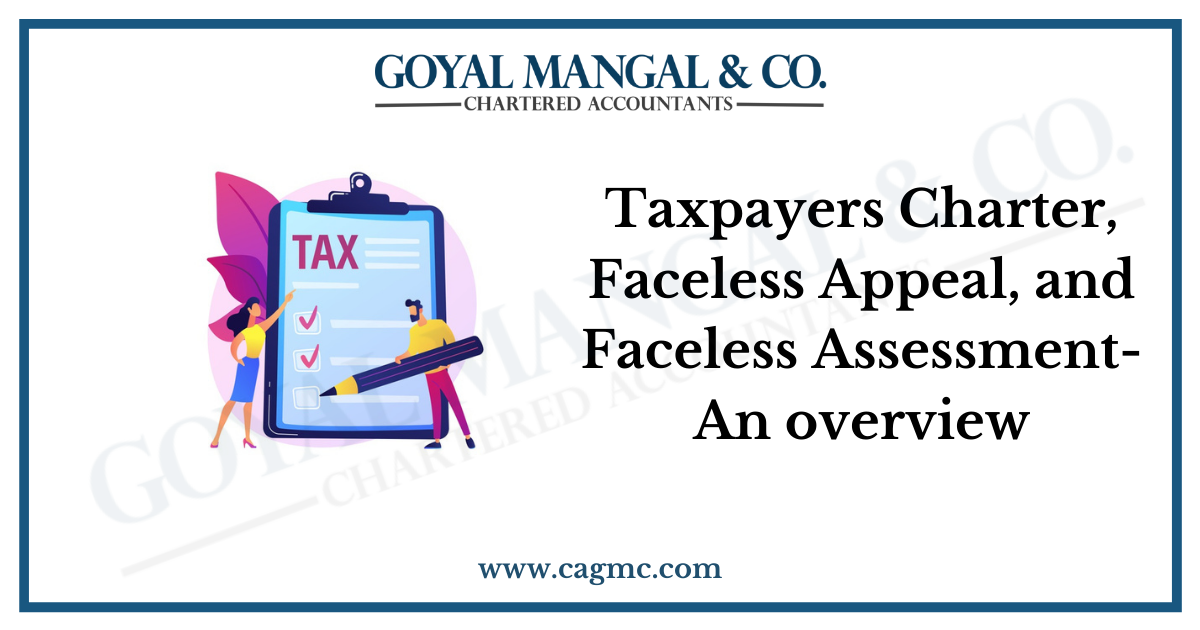| Table of Content |
What is the Taxpayer’s Charter?
The taxpayer’s charter is a historical document that contains the right of the taxpayer and obligations associated with these commitments. The aim of the Charter is that to look after the relationship between the Revenue departments and the community that they serve, a relationship of mutual trust and respect.

- Commitment to taxpayers by Income Tax Department
- To provide fair, courteous and reasonable treatment.
- Treat the taxpayer as honest.
- To prove a mechanism for appeal and review.
- To provide complete and accurate information.
- To provide timely decisions.
- To collect the correct amount of tax.
- To respect the secrecy or privacy of taxpayers.
- To maintain secrecy.
- To hold accountability to authorities.
- To enable representative of choice.
- To provide a fair and just system.
- To reduce cost of compliance.
- Expectation from taxpayers by Income Tax Department
- Be reliable or trustworthy.
- Be informed.
- Respond on time.
- Pay in time.
- Always keep correct data.
- Know what your representative does on your behalf.
What are faceless Appeals?
- Features
- The appeals are randomly allotted to any officer in the country.
- Identity of officers deciding appeal will remain unknown.
- There is no requirement of visiting the officer/office.
- The appellate decision will be team based & reviewed.
- Exceptions:
- Cases relating to serious frauds, major tax evasion, sensitive & search matters.
- International tax.
- Black money act & Benami property.
Widening the tax base
- Deduction/collection of TDS/TCS on new transactions:
- TDS will be deducted on cash withdrawal of more than 1 crore.
- TDS will be deducted on cash withdrawal of more than 20 lakh (in case of non-filers).
- TCS on motor vehicle- above 10 Lakh.
- TCS on Foreign remittance under LRS- 7.5 lakh/overseas tour packages.
- TDS on e- commerce suppliers – above 50 Lakh.
- TCS on purchase of goods- above 50 Lakh.
- Increased scope of reporting of transactions:
- Report the cash deposit or withdrawal of Rs. 50 Lakh or more in current account.
- Report the cash deposit of above Rs. 10 Lakh or more in non current account.
- Report the sale of foreign exchange of above Rs. 10 Lakh.
- Report the mutual funds, credit card, immovable property transactions, etc.
- Compulsory filing of return:
- Deposit above Rs 1 crore in current account.
- Expenditure more than 2 lakh on foreign travel.
- Consumption of electricity of more than Rs. 1 lakh.
Proposed Measures for Widening of the tax base
- Expansion of scope of Reporting of transactions (SFT)
- Report if payment of educational fee or donations exceeds Rs. 1 lakh per annum
- Report if electricity consumption exceeds Rs. 1 lakh per annum
- Report if domestic business class air travel or foreign travel
- Report if payment made to hotels is above Rs. 20,000
- Report if purchase of Jewellery, white goods, painting, marble, etc. above Rs. 1 lakh
- Report if deposit or credits in the current account is more than Rs. 50 lakh
- Report if deposit or credits in the non-current account is more than Rs. 25 lakh
- Report if payment made of property tax is above Rs. 20,000 per annum
- Report if life Insurance premium deposit is above Rs. 50,000
- Report if health insurance premium is above Rs. 20,000
- Report if taxpayer done share transactions / open D-MAT accounts or Bank lockers


